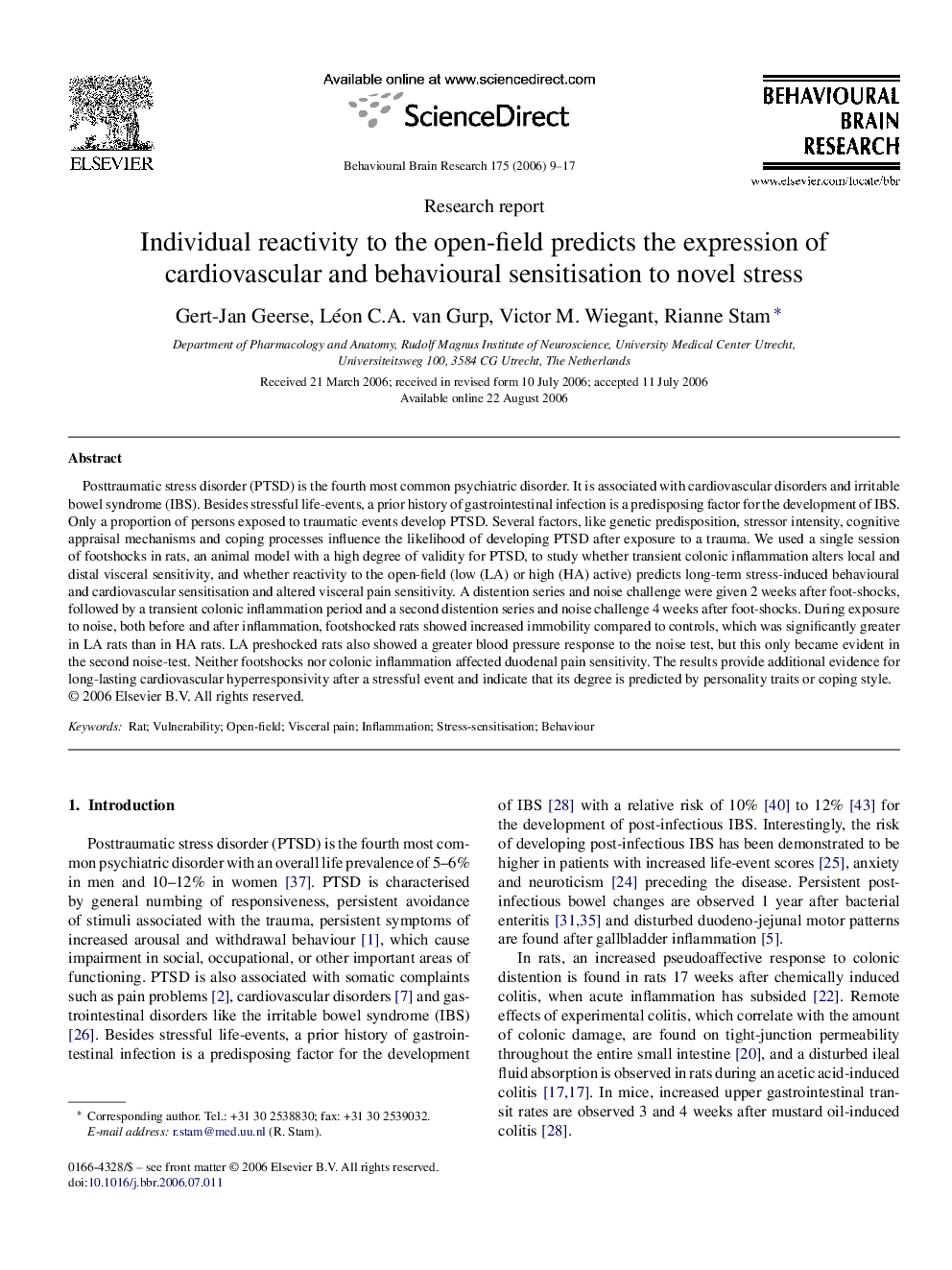| کد مقاله | کد نشریه | سال انتشار | مقاله انگلیسی | نسخه تمام متن |
|---|---|---|---|---|
| 4315924 | 1290100 | 2006 | 9 صفحه PDF | دانلود رایگان |
عنوان انگلیسی مقاله ISI
Individual reactivity to the open-field predicts the expression of cardiovascular and behavioural sensitisation to novel stress
دانلود مقاله + سفارش ترجمه
دانلود مقاله ISI انگلیسی
رایگان برای ایرانیان
کلمات کلیدی
موضوعات مرتبط
علوم زیستی و بیوفناوری
علم عصب شناسی
علوم اعصاب رفتاری
پیش نمایش صفحه اول مقاله

چکیده انگلیسی
Posttraumatic stress disorder (PTSD) is the fourth most common psychiatric disorder. It is associated with cardiovascular disorders and irritable bowel syndrome (IBS). Besides stressful life-events, a prior history of gastrointestinal infection is a predisposing factor for the development of IBS. Only a proportion of persons exposed to traumatic events develop PTSD. Several factors, like genetic predisposition, stressor intensity, cognitive appraisal mechanisms and coping processes influence the likelihood of developing PTSD after exposure to a trauma. We used a single session of footshocks in rats, an animal model with a high degree of validity for PTSD, to study whether transient colonic inflammation alters local and distal visceral sensitivity, and whether reactivity to the open-field (low (LA) or high (HA) active) predicts long-term stress-induced behavioural and cardiovascular sensitisation and altered visceral pain sensitivity. A distention series and noise challenge were given 2 weeks after foot-shocks, followed by a transient colonic inflammation period and a second distention series and noise challenge 4 weeks after foot-shocks. During exposure to noise, both before and after inflammation, footshocked rats showed increased immobility compared to controls, which was significantly greater in LA rats than in HA rats. LA preshocked rats also showed a greater blood pressure response to the noise test, but this only became evident in the second noise-test. Neither footshocks nor colonic inflammation affected duodenal pain sensitivity. The results provide additional evidence for long-lasting cardiovascular hyperresponsivity after a stressful event and indicate that its degree is predicted by personality traits or coping style.
ناشر
Database: Elsevier - ScienceDirect (ساینس دایرکت)
Journal: Behavioural Brain Research - Volume 175, Issue 1, 25 November 2006, Pages 9-17
Journal: Behavioural Brain Research - Volume 175, Issue 1, 25 November 2006, Pages 9-17
نویسندگان
Gert-Jan Geerse, Léon C.A. van Gurp, Victor M. Wiegant, Rianne Stam,